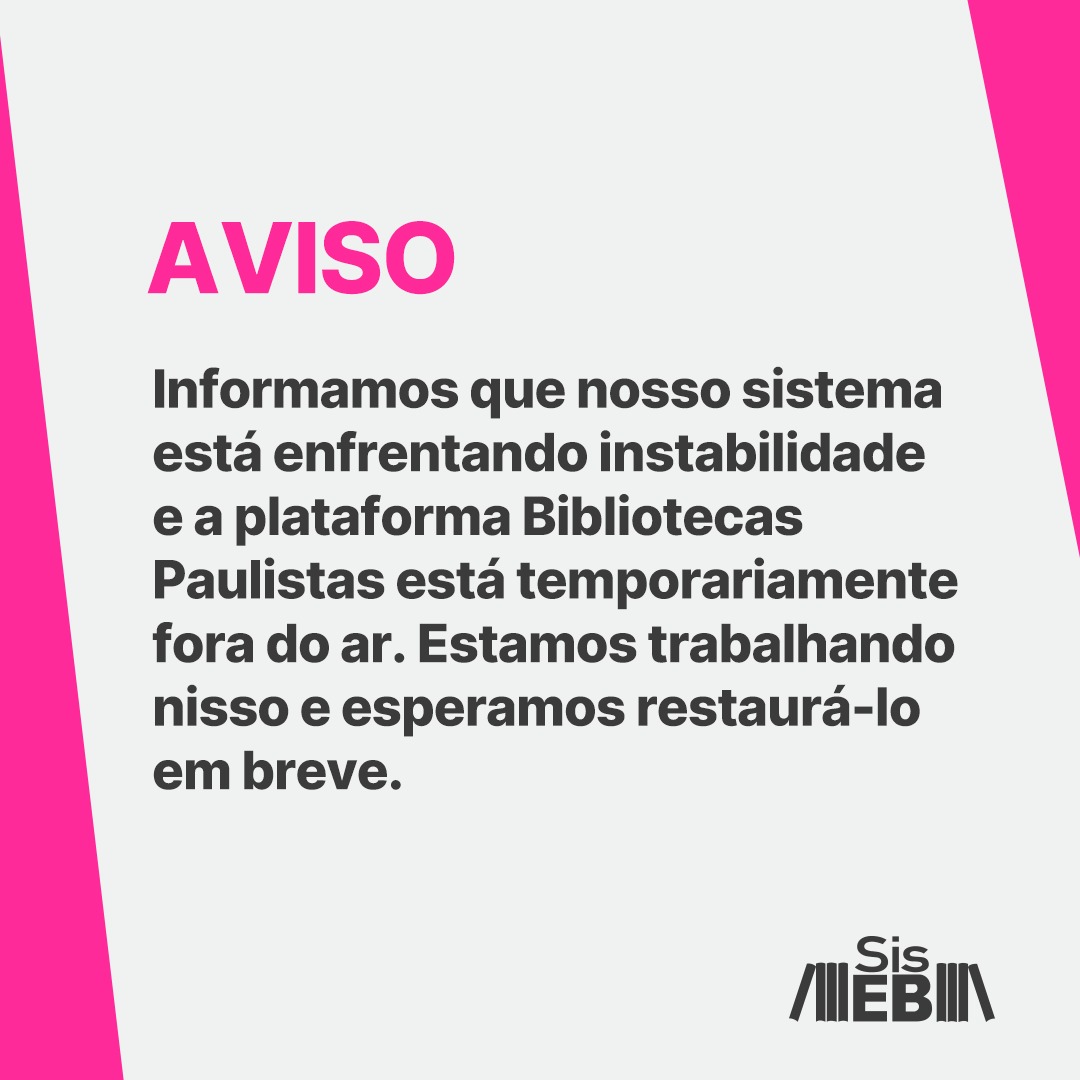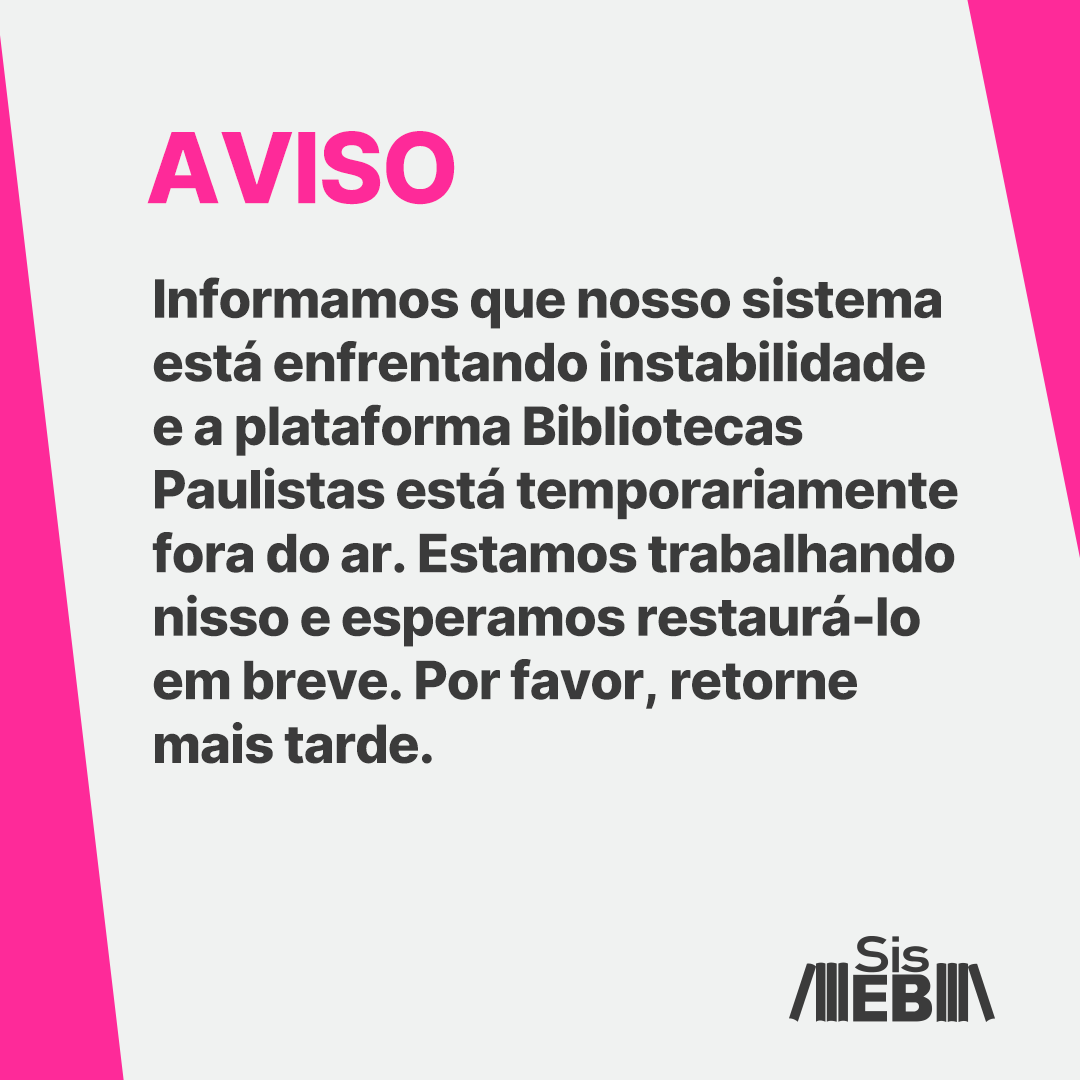The SisEB
The State System of Public Libraries (SisEB), created by decree number 22,766 of October 9, 1984 and redesigned by decree number 55,914 of June 14, 2010 integrates the 606 public libraries of 435 municipalities in São Paulo, including São Paulo Library and Parque Villa Lobos Library, considered laboratories for experiences of the concept of living library.
SisEB is coordinated by the Unit of Cultural Diffusion of the Secretariat of Culture and Creative Economy of São Paulo State Government, and has the Social and Cultural Organization SP Leituras (elected among the best 100 NGOs in Brazil for the third consecutive year) as partner in its operations. The system aims at ensuring citizens in the State of São Paulo the right to library access and the meaningful bond between each library and their territories and communities.
Among the main actions, the following ones stand out:
- Articulating and promoting joint actions with municipalities so that all of them have at least one public library operating properly.
- Promoting the concept of Living Library with spaces geared towards mediation and autonomous development of knowledge, access to reading, literature and cultures, offering services that place users as protagonists;
- Offering technical support to libraries integrating the System to create and/or modernize their material and human resources;
- Stimulating the development of programs, projects and actions that motivate and promote the development of new libraries in municipalities;
- Developing a bank of experiences, database and/or apps to collect information and disseminate relevant practices of the libraries;
- Fostering the need of specialization for library teams and adjusting the number of collaborators to meet demands;
- Assessing both actions introduced and those not introduced over the period;
- Developing a database and making it available among libraries of the System;
- Carrying out periodical programs and training (virtual, remote and in-person) focused on the goals of the Living Library;
- Carrying out a process of continuous follow-up to strengthen libraries and provide them with guidance in their cultural, social, educational and economic role;
- Supporting the renewal and update of collections;
*Source: Data from 2018, platform of Libraries in São Paulo – http://siseb.sp.gov.br/bibliotecas-paulistas/
Virtual store
SisEB virtual store is the support platform for updating and renewing collections of public access libraries in São Paulo, and every semester it makes a collection (kit) with 100-200 items available to each library. It is possible to access the updated catalog online, choose a kit with items of your preference or select the combo suggested by the team of SP Leituras.
Publications
Notes of the Library
The segment Notes of the Library is a publication aimed at professionals that work in libraries and reading spaces and deals with issues such as reading mediation, services to specific audiences ( young people, children, people with deficiencies, etc.), management and promotion of libraries in all their aspects, among other issues. The publication is part of the training activities and encourages reflections on the development of living libraries.
10-minute advocacy for the library
The newsletter is the most recent SisEB publication, launched in 2021. The content, sent periodically to the mailing system and shared by social media, has efficient tips for professionals of the area when advocating for libraries. The action takes place in partnership with the Brazilian Federation of Associations of Librarians, Information Scientists and Institutions (FEBAB).
The content of the 10-minute Library advocate posts and the blog Library Policy and Advocacy of the International Federation of Library Associations and Institutions (IFLA) is translated and adapted -https://blogs.ifla.org/lpa/.
Espalhafatos
Espalhafatos is a SisEB publication geared towards the audience of children and young adults of libraries in São Paulo. It is freely sent to hundreds of units through SisEB Collection Distribution Center. The content includes lists of books most frequently borrowed from São Paulo Library (BSP) and Parque Villa-Lobos Library (BVL), as well as articles, interesting facts, tests, jokes and comic strips.
The Espalhafatos Journalism workshops for children and young people carried out at BSP and BVL produce content for future editions, and also teach journalism techniques and literature so that the little reporter can write clear, creative and attractive texts.
Governance
Over the past decade, in view of SisEB restructuring process, there has been a continuous effort to create a network governance structure. To this end, over the years of 2012, 2013, 2014, 2020 and 2021 actions have been organized and groups formed, made up by different libraries of cities in São Paulo. Joined by common values and goals, with voluntary, horizontal and nonlinear participation and decentralized power, they have built a document that collects theoretical and practical resources for municipal, state and third sector organizations to formalize regional representation.
Actions
Training sessions
SisEB has a permanent program of in-person, virtual and remote education to encourage the personal and technical development of librarians and professionals of the area. Themes are geared towards the professional development of library teams and include reading mediation, specialized services, cultural programming, assistance and bibliographic techniques, among others.
Literary Journey (Viagem Literária)
The program aims at stimulating reading and literature as well as valuing public libraries. It was launched in 2008 to integrate SisEB actions and circulates annually in dozens of cities in São Paulo State with story tellers, writers and workshop leaders making interventions and holding meetings and workshops. The program aims at bringing books, literature and libraries closer to the São Paulo citizen, promoting quality dialogs that stimulate reading practices and behaviors, disseminating the habit and taste for reading, encouraging literary production as well as appreciation and enhancement of public libraries so that they develop a rich and vibrant local cultural programming.
Living Library Seminary
Created in 2008, it is one of the most important events in the area in Latin America and one of the main initiatives of the State Government of São Paulo to inspire, strengthen and transform the more than 600 public libraries in São Paulo territory in cultural reference centers open for the entire community.
The seminar is part of SisEB actions for the development of the contemporary library as ‘house of the word’ and space to exercise freedom, have a broad education and develop autonomous knowledge.
The event promotes meetings for reflection and dialogs on current challenges and problems, and also high-level lectures and round table meetings to share knowledge and exchange experiences. It includes chats with those who produce literature, interaction with bold and serious ideas and the search of alternatives to improve Brazilian libraries. The presentation of panels and posters, one of the highlights of the event, gather experiences that steadily and attentively reaffirm the commitment of strengthening and enhancing the quality of programs and services offered to the community.
PraLer- Reading Pleasures
Created in 2008, it is a program that aims at promoting and developing the taste for reading in populations that live in territories of social vulnerability. It is carried out in partnership with organizations interested in implementing and/or expanding reading actions and literature among their public. Mediation strategies vary according to the needs of target groups.
Praler contributes to stimulating reading and building readerly behaviors, as well as ensuring the practice of cultural democracy in public spaces that are not specifically destined to this end, such as nursing homes, hospitals, orphanages, shelters, health centers, prisons and community organizations. The program counts on the donation of collections of various publications and serialized interventions conducted by local agents and facilitators experienced in cultural mediating and reading.
The main goal of the program is to have the library, literature, books and reading as transformation tools for individual processes of social recovery, and the regain of self-esteem and citizenship. Mediation actions aim at leaving as legacy to the partner organization the permanence of the readerly practice, the free sharing of collections donated and the learning acquired on reading mediation practices, which may then be reapplied by their own teams.
Brazilian literature in the 21st century
The Brazilian Literature Project in the 21st century is a partnership between the Federal University of São Paulo (UNIFESP) and SP Leituras (SP Reading)- Paulista Association of Libraries and Reading. It aims at building a curatorship project of the collection about Contemporary Brazilian Literature regarding the 21st century, available at São Paulo Library and Parque Villa Lobos Library, with actions on three fronts: promotion of its dissemination, access to the collection and artistic and cultural production to be supported based on the collection. Its time axis includes productions of authors literarily active in the first two decades of the 21st century, which includes both authors born in the 20th century or who have published/ premiered then, and also those born at the beginning of this millennium.


.png)

.png)
(1).png)
.png)
.png)


